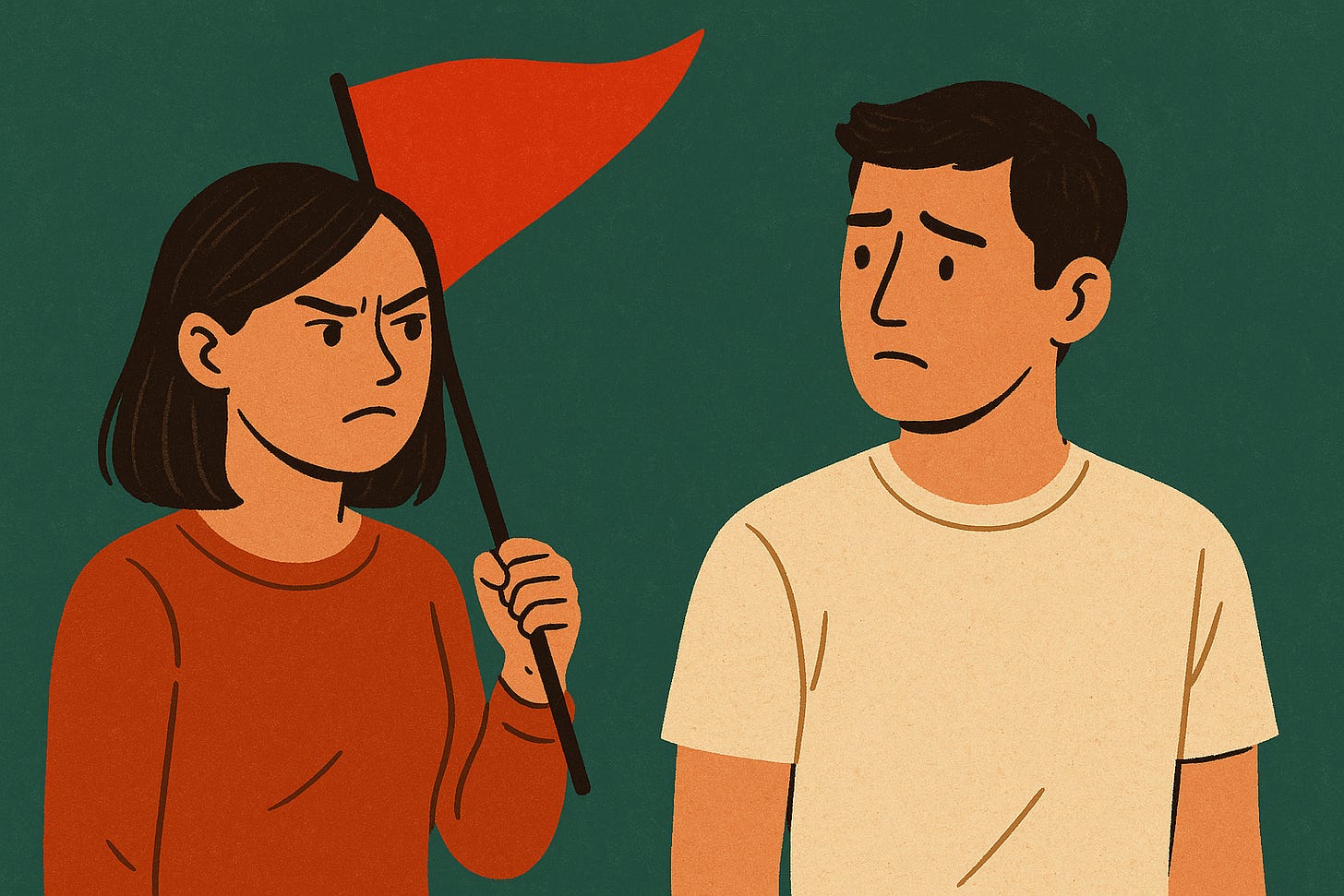Stop Collecting Red Flags Like Souvenirs
As potential is not partnership and charm is not character.
You see it.
You feel it before you can explain it.
A tightness in your chest. A hesitation in your voice. A sentence that doesn't sit right. A reaction that echoes something old. You feel your gut whisper, 'This isn't it,' but then you talk yourself out of it.
You tell yourself to stay kind. To stay open. To give it time. You make excuses. You rationalise. You explain away behaviour that, deep down, you know isn't healthy.
And just like that, another red flag gets folded into your suitcase, tucked away, minimised, made into something sentimental. A memory. A lesson. A story.
We collect red flags like souvenirs.
Little reminders of times we knew better but didn't listen. The times we stayed too long. Gave too much. Hoped harder than we should've had to. And it's not because we're foolish, it's because we're human. We want to believe the best. We want to give people a chance. We want to prove we're not like the ones who walked away too soon.
But ignoring red flags doesn't make you generous.
It makes you a participant in your unravelling.
This is not about blame. This is about clarity. About the sacred, uncomfortable moment when you stop pretending not to see.
Because red flags are information.
They are not warnings meant to shame you. They are signals intended to save you from more damage, more self-abandonment, more emotional labour for people who will never meet you halfway.
The sooner you honour those signals, the less you'll have to recover from later.
You don't need more evidence.
You don't need to wait until it gets worse.
You don't need to keep proving you're loyal.
You're allowed to leave at the first sign of misalignment.
You're allowed to trust your gut the first time, not the tenth.
And yes, it's hard. Because red flags often come wrapped in charisma. In chemistry. In promises. In charm. They come layered with potential. With maybes. With "what if this time is different?"
But potential is not partnership and charm is not character.
What matters is consistency, how someone shows up when it's inconvenient. How do they respond when you express a need? Whether your boundaries are met with respect or resistance.
You shouldn't have to compromise yourself to maintain peace.
You shouldn't have to work this hard to be understood.
You shouldn't have to ignore your discomfort to stay connected.
A red flag is not an invitation to prove your worth.
It's a reminder to protect it.
So if you've ignored the signs before, you're not alone.
You're not broken. You're not naive. You were likely doing what many of us have been taught to do: prioritise connection over clarity, attachment over alignment. Hope over truth. You're now allowed to do it differently.
You're allowed to stop collecting red flags and start honouring them.
Not with fear. Not with bitterness. But with discernment. With peace.
Because boundaries aren't walls, they're wisdom. And red flags aren't judgments but a form of guidance.
So listen to what your body knows before your brain justifies it away.
Pay attention to the patterns, not the apologies.
And remember: you don't need to stay in something just because it once made you feel less lonely.
Sometimes, walking away is the healing.



